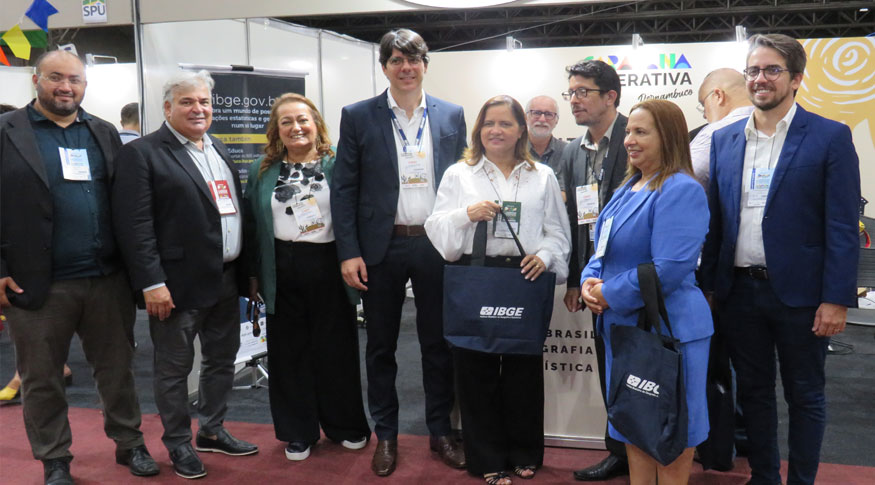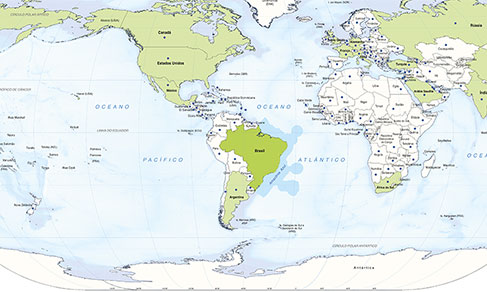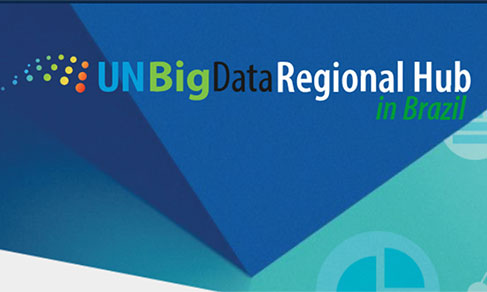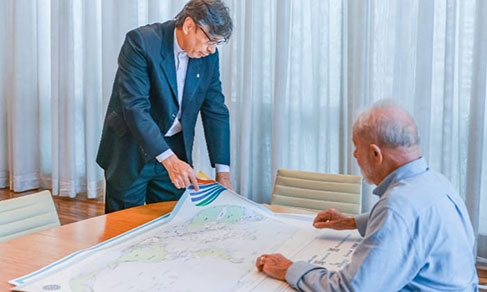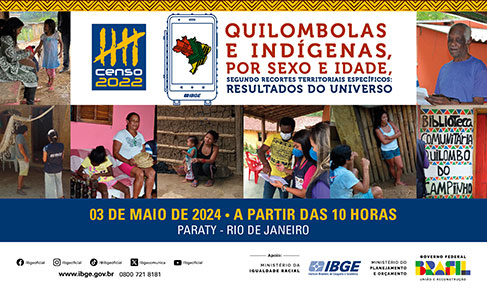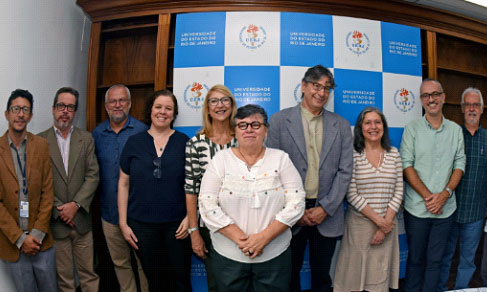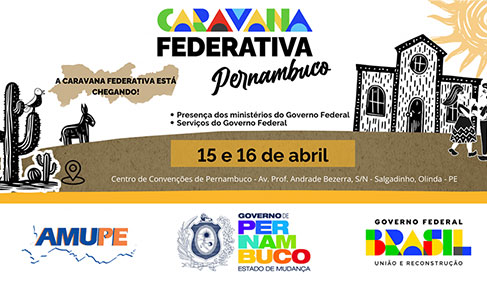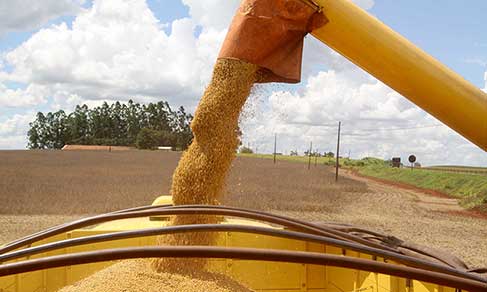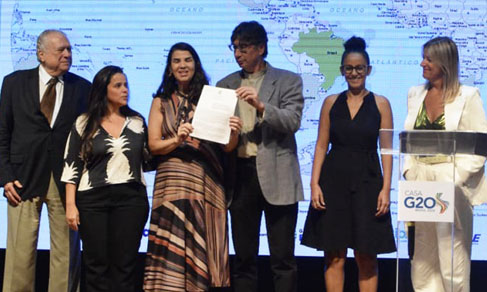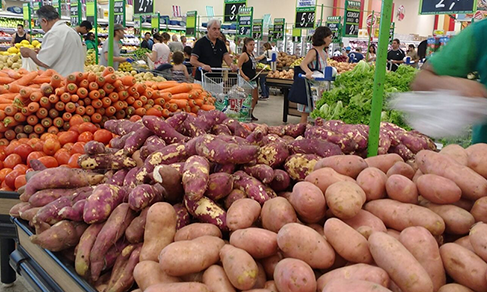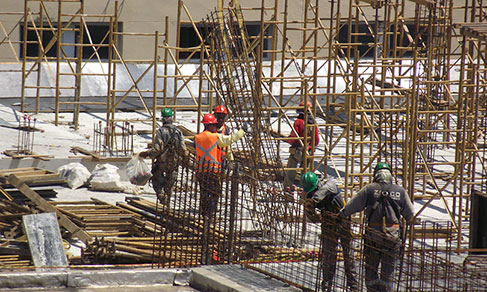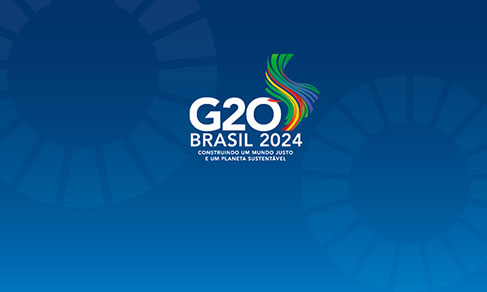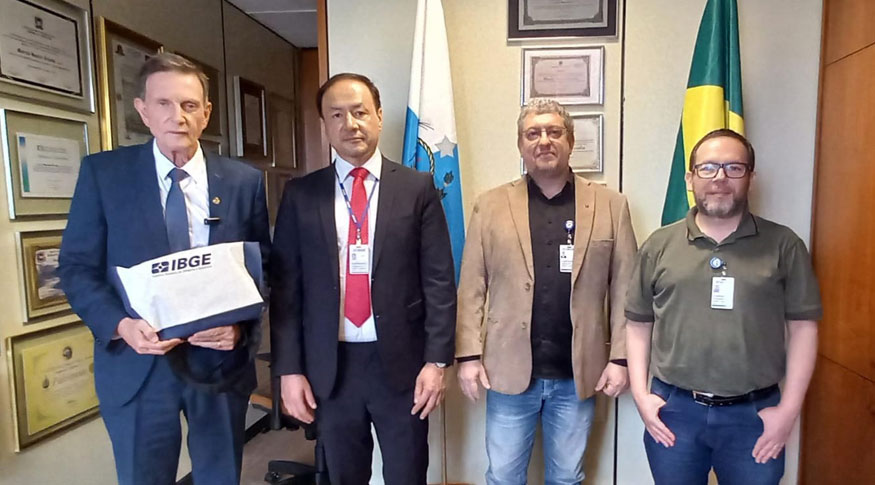Transparency
IBGE discusses legislation on statistics and Censuses in Brasília
April 13, 2018 02h00 PM | Last Updated: June 05, 2018 11h04 AM
The IBGE carried out two seminars in the Chamber of Deputies in Brasília (DF): on April 04, to discuss the creation of the regulatory framework of the Official Information System; and, on April 10, to present information on the Census of Agriculture, which is undergoing its data analysis phase, and on the Population Census 2020.
The seminar Census of Agriculture and Population Census: overview and future perspectives was conducted in partnership with the Parliamentary Front of Geography, Statistics and Agri-Environment (Gema). The president of the institute, Roberto Olinto Ramos, participated in the opening session and talked about the institutional partnerships for the Censuses. The president of the Gema Front, congressman Carlos Melles (DEM), presided the seminar and emphasized that census operations are crucial to the country.
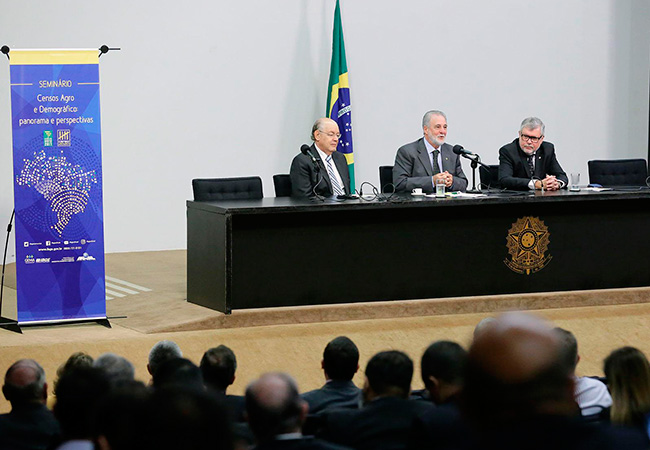
Congressman Carlos Melles (center) presided the seminar on the Censuses in the Chamber. On the right, Roberto Olinto, president of the IBGE and, on the left, congressman Carlos Hauly
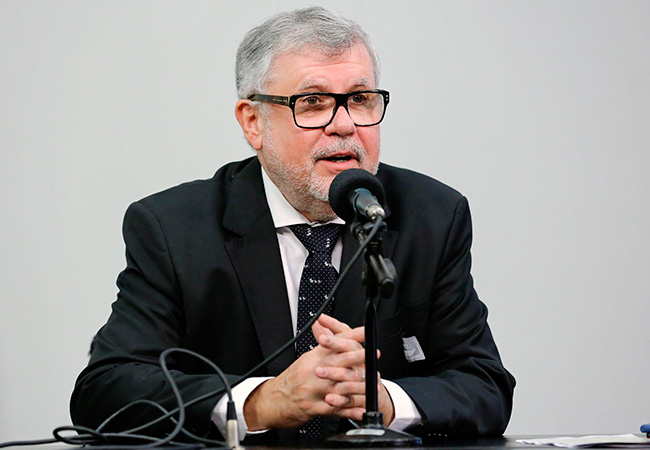
President of the IBGE, Roberto Olinto Ramos, speaks about the partnerships to conduct census operations
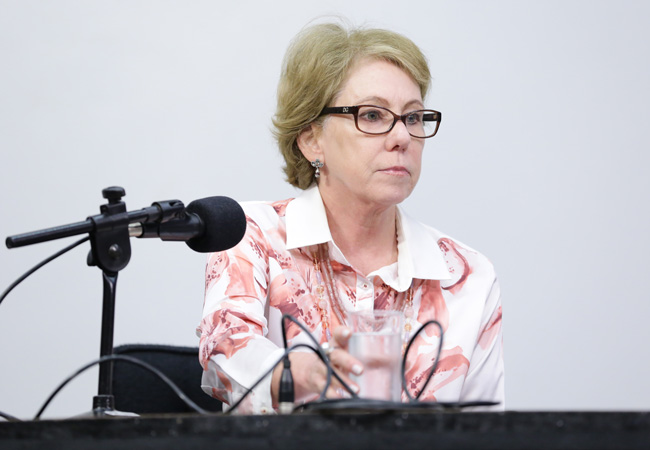
IBGE Operational Coordinator of the Censuses, Maria Vilma Salles Garcia, talks about the 2020 Census
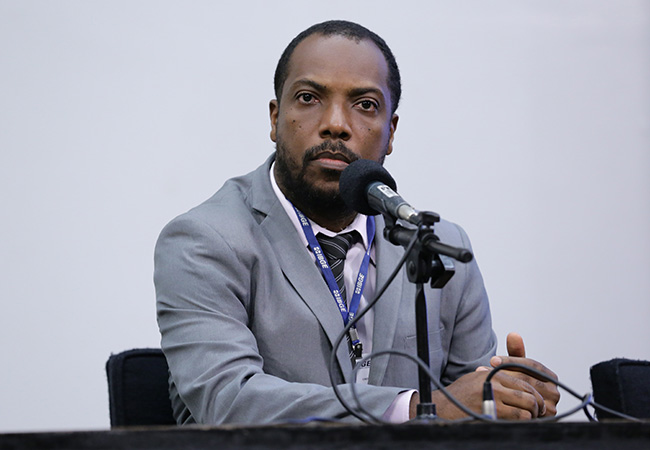
IBGE Director of Surveys, Claudio Dutra Crespo, argued about the importance of the census operations for the municipalities
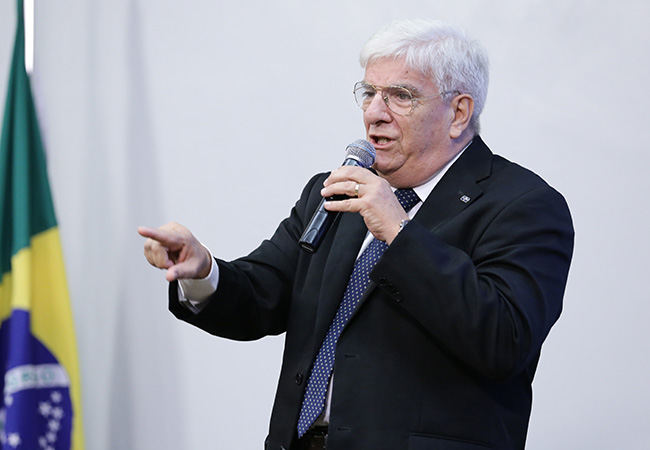
Technical Manager of the Census of Agriculture, Antonio Florido, talks about the Census of Agriculture
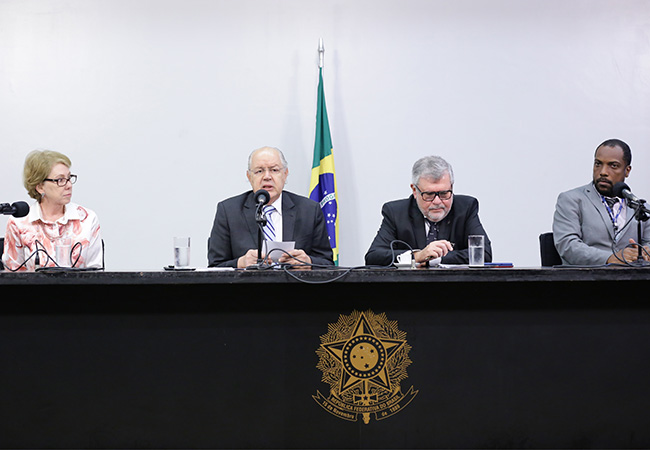
Maria Vilma Salles Garcia, congressman Luiz Carlos Hauly, Roberto Olinto, Claudio Crespo (left to right)
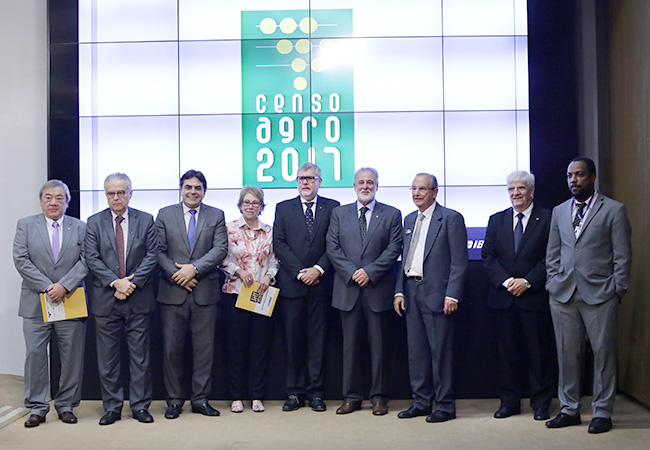
In the Chamber, the IBGE presents the Census of Agriculture accounting report and the 2020 Census
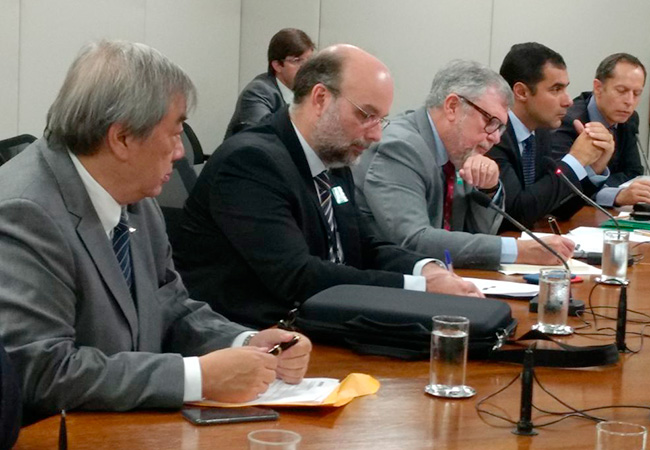
The roundtable discussion Modernization of the Official Information System and its regulatory framework was composed by, left to right, the Coordinator of the Center for Information Documentation and Dissemination, David Wu Tai, the head of the statistics department of the Central Bank (BC), Fernando Rocha, the president of the IBGE, Roberto Olinto Ramos, and the sub-chief of Analysis and Monitoring of Government Policies of the Civil House of the Presidency of the Republic, André Andrade.
Olinto highlighted the accounting nature of the event, due to the effort to carry out the Census of Agriculture. "The next major operation of the IBGE is the Population Census, which will demand a lot of support. Therefore, we must show the importance it has to Brazil", he says.
He explained that, in the preparation phase for the Census of Agriculture, there was a debate on how the IBGE could get support from several organizations. As a result, nine partnerships with agriculture-related institutions were set up in order to make owners of agricultural establishments aware of the need to answer the questionnaire properly.
"That was something new, in terms of its intensity. Either as a strategy or as an experience, the result was amazing, especially as far as the census dissemination is concerned. The Population Census is at the door, or rather, it has already started for the IBGE. We got to continue this process. It is a longer process, in which major operations can act as motivators, but partnerships should be established in the everyday routine. Continuity is a key concept", Olinto adds. At the end, the president of the IBGE signed a deed of undertaking with the National Front of Mayors (FNP) to get support to the carrying out of the 2020 Census.
Read more: With partners, Census of Agriculture concludes 2nd month with 2 million properties visited
IBGE presents 2020 Census and gives accounting report on Census of Agriculture in the Chamber of Deputies
The IBGE Director of Surveys, Claudio Crespo, and the Operational Coordinator of the Censuses, Maria Vilma Salles Garcia, presented information on the 2020 Population Census in a seminar in the Chamber of Deputies on April 10.
Crespo highlighted the importance of Population Censuses and Population Counts to the municipalities. He clarified that the results of census operations are necessary for many purposes, including to the Population Estimates, published annually by the IBGE and used for the allocation of the Municipal Revenue Sharing Funds (MPF). "In addition to the several pieces of information it produces, the Census is an infrastructure: several surveys derive from its database. The production of statistics and geo-information have in the Census a fundamental basis for the country to get to know itself," he concluded.
According to Maria Vilma, the Population Census, which goes to the field between August and October 2020, is already being prepared. She says that the IBGE estimates a total cost of approximately R$3 billion. Vilma stated that Brazil was the first country in the world to implement a 100% electronic data collection. "We are a model for many countries. I usually say that the Census is a high-cost operation, but not expensive, because of the quality of the information it produces."
The technical manager of the Agricultural Census, Antonio Florido, in turn, declared that IBGE is working to make data available faster and with clearer and deeper analyses. Florido highlighted the importance of the digital tools in the Census of Agriculture. "We had a previous list of addresses and we were able, for the first time, to keep track of the census taker's steps in real time. Digital tools allow us to enhance the quality of our work." The first results of the Census of Agriculture are due to be released in July this year.
IBGE and BC defend the creation of a regulatory framework for the Official Information System
The roundtable on Modernization of the Official Information System and its regulatory framework, held on April 4 in the Chamber of Deputies, was composed by the President of the IBGE, Roberto Olinto Ramos, the head of the Statistics Department of the Central Bank (BC), Fernando Rocha, and the Sub-Chief of Analysis and Monitoring of Government Policies of the Civil House of the Presidency of the Republic, André Andrade. Also present were the Director of Surveys, Claudio Crespo, the Executive Director, Fernando Abrantes, the Coordinator of the Center for Information Documentation and Dissemination, David Wu Tai, and the Assistant Director of Geosciences, João Bosco de Azevedo.
Olinto highlighted that it was the first time the IBGE and the BC gathered together to discuss statistics. "The presence of the Central Bank here today is due to the alignment of their work with what we do in the IBGE. The Civil Office, in turn, took part in another discussion, the law of the so-called Green Gross Domestic Product, the 'GGDP' (Law 13,493/2017). The idea is to re-discuss the matters concerning information in Brazil, " he says.
The IBGE, according to its president, defends the creation of an integrated and sharable information system, with established limits, responsibilities and competences. As a result, the monopoly of groups that hold certain pieces of information without sharing them could be avoided. For him, it would generate increase in data production, decrease of costs and of the respondents' burden. Besides, it would enhance the analytical capacity of information producers.
Created in September 2017, the Statistics Department of the BC is responsible for, according to Fernando Rocha, designing or updating a legal framework for the production of statistics by the BC. He pointed out, however, the existence of some gaps, since the bank is not eligible for surveying information on some entities. "We would need to have a national system of statistics. Although we have an agenda covering up to 2021, we do not have a system that allow the discussion of such issues. The world is changing and we have to catch up with it", he said, highlighting the need and relevance of the regulatory framework.


